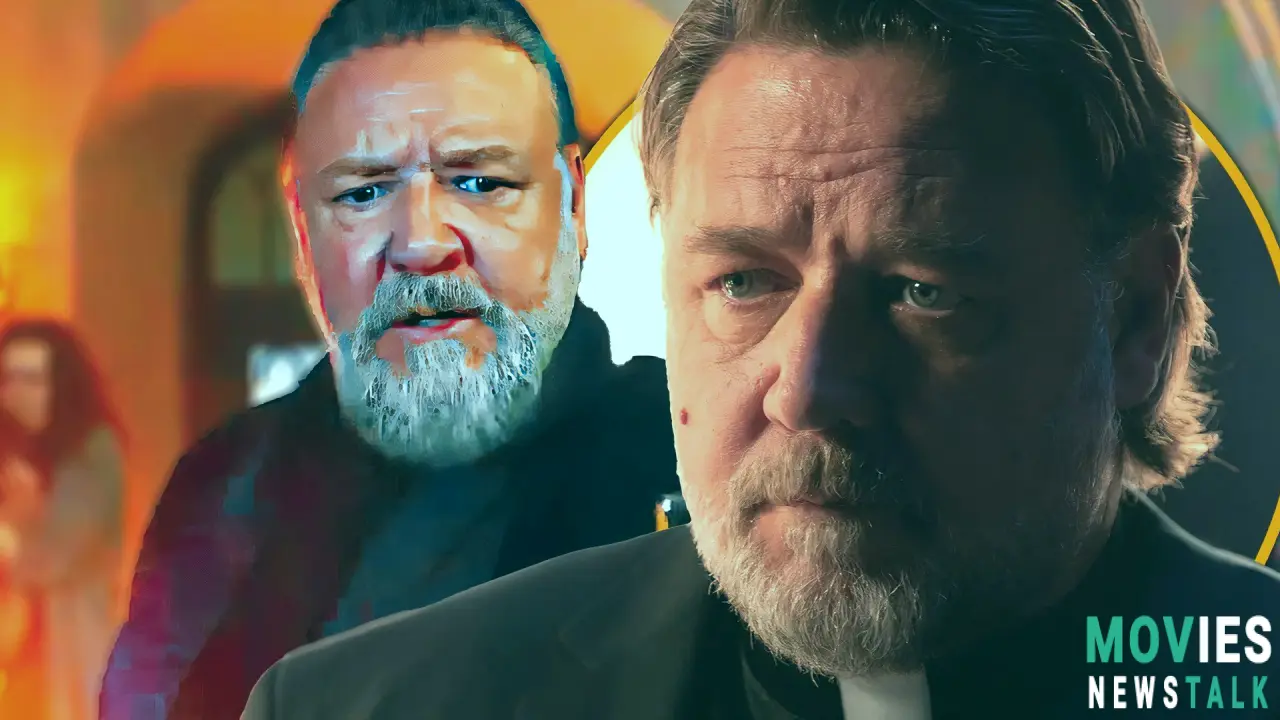Close Succession Russell Crowe's "The Exorcism" and "The Pope's Exorcist"
Comparisons between "The Exorcism" and "The Pope's Exorcist" are unavoidable given two Russell Crowe exorcism-themed films that are released closely apart. While "The Pope's Exorcist" is a more conventional supernatural thriller, "The Exorcism" is a meta horror movie concentrating on the creation of a horror movie itself. Although Crowe was cast for both movies without any intention, it starts an interesting dialogue between the two projects.
Creative brains behind "The Exorcism," writer M.A. Fortin and director Joshua J Miller, admit the coincidental character of the consecutive releases. Miller, who oversaw the movie, says it's "an interesting conversation," stressing the different approaches and subjects of the two films. Fortin, repeating Miller's observations, said he loved the venerable "Exorcist" and how "The Exorcism" offers a fresh take on the subgenre.
Will Box Office Success of "The Exorcism" Match "The Pope's Exorcist"?
Given "The Pope's Exorcist's outstanding box office performance—which grossed over $77 million against a $18 million production budget—one wonders whether "The Exorcism" will be able to match that success. Although "The Exorcism" seems to be a stand-alone narrative rather than a franchise-building endeavour, its publication coincides with a period of popular enthusiasm in the exorcism subgenre. With "The Pope's Exorcist 2" on the horizon, "The Exorcism" clearly has chances to profit from that interest.
"The Pope's Exorcist" had great box office performance despite varied evaluations from critics. Its later Netflix premiere confirmed its popularity even more since it ranked No. 1 nine days running. Though its less-than-perfect reviews will make "The Exorcism" difficult, the movie might yet find an audience given low competition on its opening weekend.
Plot of The Exorcism: A Twisted Story of Reality and the Supernatural
Following a troubled actor named Anthony Miller (Russell Crowe), the movie shows him spiraling into a frenzy of anarchy and paranoia while shooting a supernatural horror film. Lee (Ryan Simpkins), his daughter, notes his unpredictable conduct and wonders about a more underlying explanation. The line separating reality from the supernatural blurs as the film goes on, producing a dramatic and spooky climax.
"The Exorcism" offers a novel approach to the exorcism subgenre. The movie explores themes of addiction, family dynamics, and the blurring borders between truth and fiction, therefore deviating from a simple possession narrative in terms of psychological complexity of its characters.
Review "The Pope's Exorcist" and its Sequel
Russell Crowe's Father Gabriel Amorth, in "The Pope's Exorcist," follows the Vatican's top exorcist as he investigates a child's possession and discovers a conspiracy the Vatican has long maintained under cover of silence. Commercially successful, the movie drew viewers with its mix of theological mystery and supernatural horror.
Audiences are keen to witness what fresh otherworldly obstacles Father Amorth will face with "The Pope's Exorcist 2" currently under progress. The next book is meant to delve more into the realm of exorcism and Vatican secrets. Although the movie is still in development, Crowe is rumored to be reprising his part, hence there is great expectation about its premiere.
2024 Exorcism Genre: An Emerging Trend
Exorcism-themed movies have a long history in the horror genre; 2024 is looking to be especially active for the category. Both "The Exorcism" and "The Pope's Exorcist" show the continuing attraction of these tales, which appeal to our anxieties of the future and the possibility for spiritual powers to shape our planet.
The popularity of these movies also emphasizes an increasing tendency toward greater meta horror, in which movies investigate the essence of narrative itself. Particularly notable for its investigation of the creative process and the ability of narrative to change reality is "The Exorcism". These movies' rising appeal points to viewers' readiness for a new interpretation of the exorcism genre—one that combines psychological depth and meta criticism with classic horror aspects.

